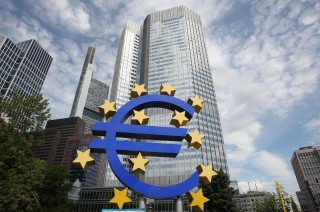
Christine Lagarde: a top player on the monetary throne
External Relations 14 July 2019Known as one of the most influential women of the world, she will be the first female president of the European Central Bank. In 1981, she started working as a lawyer at Baker & McKenzie, in Paris. Her political career began with the support of Mr. Chirac and since 2000 she is an economist often eager to propose heterodox analysis and “not-so-traditional” economic views.
Once she graduated at the Paris-Nanterre University, at the very beginning of her career Ms. Lagarde had the chance to work as an intern with the staff of the US congressman William Cohen, who will, later on, become the US Defence Secretary under the Clinton presidency. In 1981, in Paris, she started working for Baker & Mckenzie becoming, after 18 years, the number 1 of the law-firm. Her political career began thanks to the endorsement by Jacques Chirac and Jean-Pierre Raffarin.
Since then, Christine Lagarde collected one success after another: first woman to the Ministry of the Economy with the former president Sarkozy, first woman nominated to seat at the International Monetary Fund (IMF), and, at 63 years old, she will be the first woman to lead the monetary policy of the European Union.
Thus, in the early 2000s, the business lawyer Lagarde became an economist with heterodox beliefs. As far as the “Lehman-case” is concerned, during an interview, she took the opportunity to suggest that if Lehman Brothers would have been run by women, the outcome would have been different – because of their specific aversion to risk.
Furthermore, about the Greek crisis, as of the head of the IMF, Ms. Lagarde held back the austerity policies saying that those were probably a “mistake”. Ms. Lagarde publicly declared that the Greek debt was “sustainable”, in contrast with those internal dossiers of the IMF stating about huge “grey areas” of the greek bail-out – so significant uncertainties that the staff could not guarantee the Greek debt as perfectly sustainable.
Ms. Lagarde admitted to having underestimated damages provoked by measures imposed to Athens, as disposed of by the bail-out plan jointly tailored by the European Commission and the European Central Bank (ECB).
About environmental issues, Lagarde endorsed the controversial carbon tax, imposed by the French government determining the explosion of upheavals and riots all over France.
Anyway, from next November onwards her area of expertise will be Europe: Ms. Lagarde does not fear any risk of implosion, also because, in her opinion, several EU countries still care about the European integration process. Very likely, her approach will follow the path already set by former president Draghi, backing policies of accommodation, always within the limits imposed by the ECB mandate about the inflation target.
Going back to 2013, the letter addressed to former president Sarkozy is a bitter sip to swallow for anyone happy today for her nomination to the ECB. The “servile tone” of the letter (as Ms. Lagarde herself put it down) characterizes every single word of the text. This harmful precedent casts a dark shadow on the hypothesis of independence and impartiality of the ECB policies.


